Here is Your Ultimate Business Credit and Funding Toolkit
Learn what credit and funding options you have and how they work.
CLICK HERE TO DOWNLOAD A PDF VERSION OF THE TOOLKIT


Business Loan Overview
The good news is that no matter what your business size is or your credit score situation, there are many funding options for business owners.
Even if you have been turned down earlier by a bank, there are many other funding sources.
My advice is that if you have a good relationship with your bank, start there. This will likely be the cheapest source of funds. That said, banks tend to deny 90% of applications, especially for anything that does not fit their exact narrow criteria.
Here at Business Loan Randy, you can submit one application, and it is enough to get you started with 150 lenders and 2500 different funding programs! Often you can get back multiple offers within days that you can then compare to find the best solution for your situation.
There are two kinds of credit checks - hard and soft. Hard is when a lender directly pulls all of your credit history. This shows up on your credit report. Soft is when a lender or broker just pulls your high-level credit scores. This does not affect your credit report. We only need a soft pull to get you started. You really want to avoid hard credit checks whenever you can. They decrease your credit score.
Before borrowing we want you to become an educated consumer so that you don't have borrower's remorse a couple of months from now. Let's get started.

Personal Credit Scores
There are two types of credit scores, personal and business. Here we will focus on the personal credit score.
The most common score used by lenders is called FICO. If you have online banking, often your bank can provide you this score each month. Click Here for your free FICO Score. 90% of lenders use this score and it is often one of the first questions you will be asked. What is your FICO? For example, I have Wells Fargo. They provide me a monthly update at no costs. The maximum FICO score is 850 - almost impossible to achieve. Anything 700 and above is good to excellent.
The three main credit bureaus are Equifax, TransUnion and Experian. Once a year you can get a free report of all of your credit information. Click here. It is required by Federal law that you can see your information. This will be invaluable to understand what problems you may have with your credit history. Fixing credit history takes some time, usually 3 to 6 months, but can significantly raise your credit score. This is totally worth the effort. Increasing your FICO even another 50 points will greatly benefit you.
How does your personal credit score affect business funding? For certain types of funding like Merchant Cash Advance (MCA) and Accounts Receivable Factoring, it plays a minimal role. These lenders are securing their interest against future credit card receipts or invoices. Same is true for some equipment financing where even with a FICO score of 500 we can still probably get your funded. At 500 you are considered very high risk, so expect high interest rates.
On the other hand, if you are trying to get lines of credit, your FICO score will play a huge role. In this case the lender only has your track record to base their future expectation of payments on. Lenders are generally looking for 700 and above.
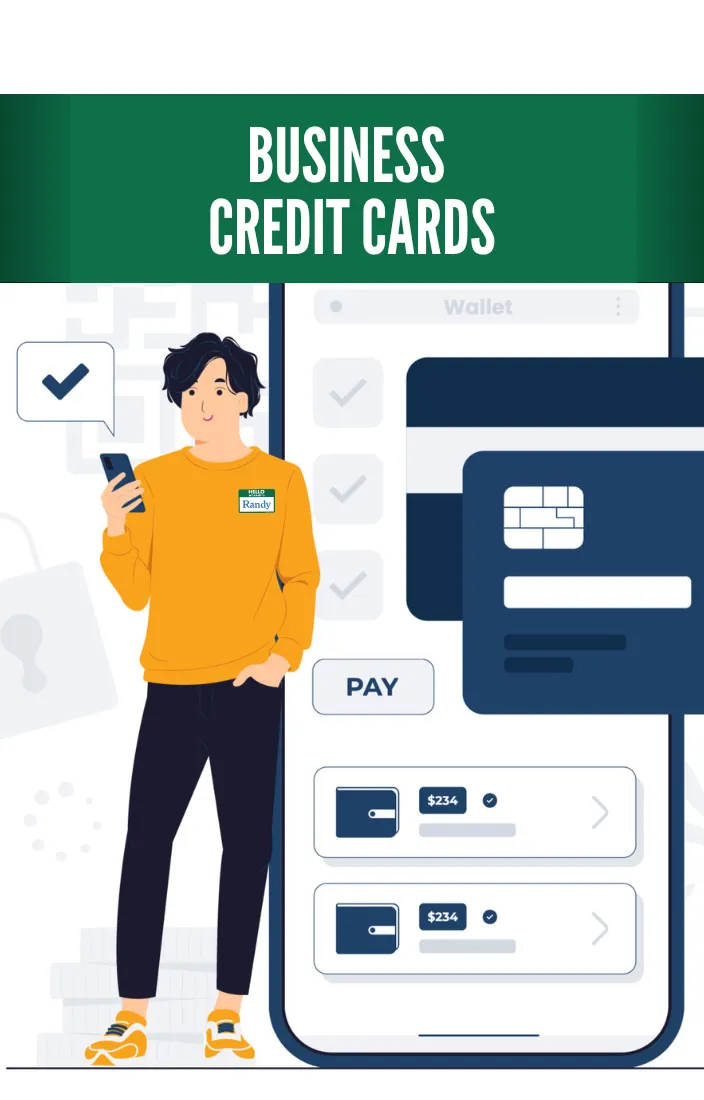
Business Credit Cards
Business credit cards are revolving lines of credit. You can draw from and repay the card as needed, as long as you make minimum monthly payments and don’t exceed the credit limit. They may or may not be secured with your personal guarantee. Some startups use the concept of credit card stacking. This is where you apply for multiple credit cards and then stack them together for the financing that you need. To avoid high interest costs, the strategy is to find new cards that have a 0% interest rate for 6 to 12 months and keep moving the balances around.
That aside, Business Credit Cards are typically best used for financing ongoing expenses, such as travel, office supplies and utilities. Pay them down monthly or as quickly as possible.
Pros:
Earn rewards on your purchases. These can be frequent flier miles or cash rebates.
No collateral required
Cons:
High cost, with a variable rate that may rise.
Extra fees may apply.
If you are not diligent about your finances, you will soon end up with a stack of maxed out credit cards at very high interest rates. I have been in this situation - try to avoid it!
Best for:
Ongoing business expenses.

Business Lines of Credit
A business line of credit provides access to funds up to your credit limit, and you pay interest only on the money you’ve drawn. It can provide more flexibility than a term loan. This is excellent to have in your back pocket to cover short term cash flow needs. For example, you are waiting for a check for an $80,000 invoice to be paid, but you need $20,000 for payroll this Friday, you can instantly tap into your line of credit and then solve the problem.
Pros:
Flexible way to borrow.
Typically unsecured, so no collateral required.
Cons:
May carry additional costs, such as maintenance fees and draw fees.
Strong revenue and credit required.
You will need a good credit score
Best for:
Short-term financing needs, managing cash flow or handling unexpected expenses.
Seasonal businesses.

Equipment Financing
Equipment loans help you buy equipment for your business, sometimes including semi-truck financing, office equipment, stationery machinery, etc. An equipment loan's term typically is matched up with the expected life span of the equipment, and the equipment serves as collateral for the loan. Rates will depend on the value of the equipment and the strength of your business. The key item to think about is ROI (Return on Investment). If you buy a $400,000 excavator, will your revenue exceed the monthly payments?
Pros:
You own the equipment and build equity in it.
You can get competitive rates if you have strong credit and business finances.
Likely you can get depreciation and/or investment credits for your tax bill.
Cons:
You may have to come up with a down payment.
Equipment can become outdated more quickly than the length of your financing.
As opposed to renting the equipment you will be responsible for the equipment maintenance.
Best for:
Businesses that want to own equipment outright. I personally love to own my equipment outright.
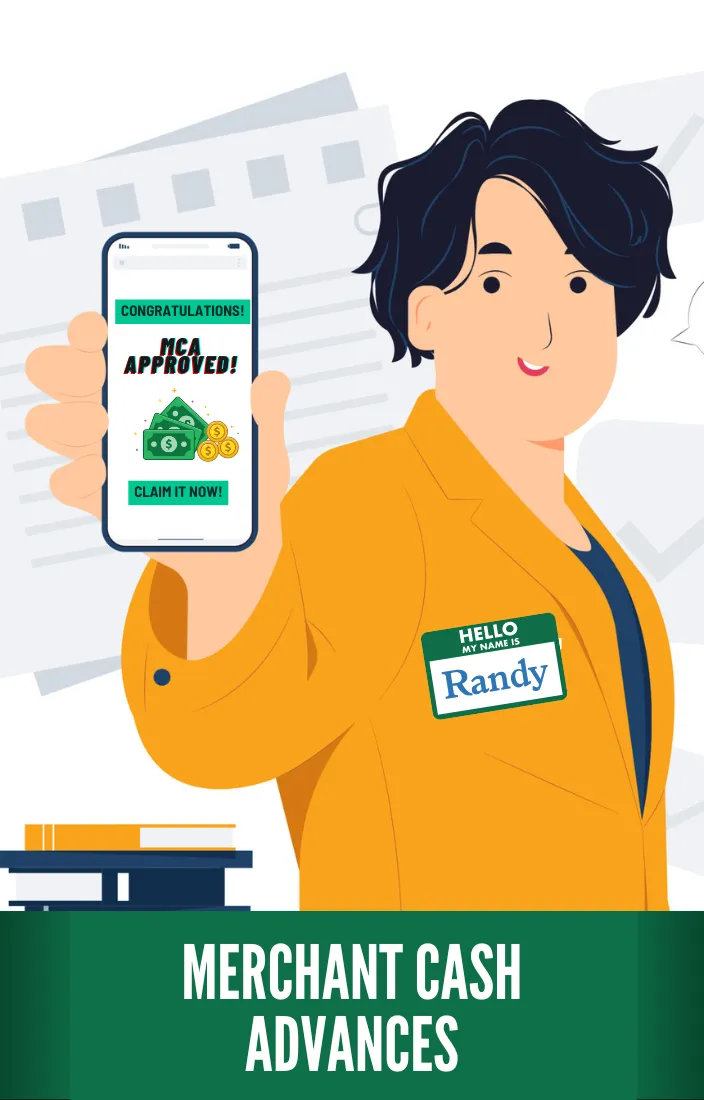
Merchant Cash Advances
A MCA (Merchant Cash Advance) gives you a lump sum of cash up front that you can use to finance your business. Instead of making one fixed payment each month from a bank account as you would with a term loan, you make payments on a merchant cash advance either by withholding a percentage of your credit and debit card sales daily, or by fixed daily or weekly withdrawals from a bank account. Merchant Cash Advances are VERY FAST MONEY, but costly. Upon approval you can expect a wire transfer the next day and sometimes the same day. How does it work?
Let's imagine that you have on average $50,000 a month in credit card receipts. You can expect to be able to borrow 80% of this amount or $40,000. Again, this is a crazy fast turnaround to receive the funding.
The term for example may be for 8 months. On a daily basis (sometimes weekly) the lender will take an agreed upon amount of your daily deposits such as 15% until the loan is paid. It is very different than a traditional loan - it fact is it not considered a loan but a cash advance. If your receipts are $1,000 today, then the lender will take $150 of it. If sales are slow tomorrow and you only bring in $200, then the lender will take $30.
Merchant cash advances are not stated as an interest rate but as a factor rate. Typical factor rate is 1.35 to 1.50. If you borrow $100,000 and the factor rate is 1.35 then you will repay a total of $100,000 x 1.35 = $135,000. Like I said, very fast money to receive but not cheap money.
Pros:
Fast cash, usually easy to qualify for.
Unsecured financing so no collateral required.
Low credit scores are OK. Security is against your future receipts.
Cons:
Very expensive borrowing costs - usually very high interest rates.
Frequent repayments can create cash flow problems. especially if you start taking out multiple cash advances.
Best for:
Businesses that have high and consistent credit card sales and can handle frequent repayments.
Businesses that can't get financing anywhere else and can't wait for capital.
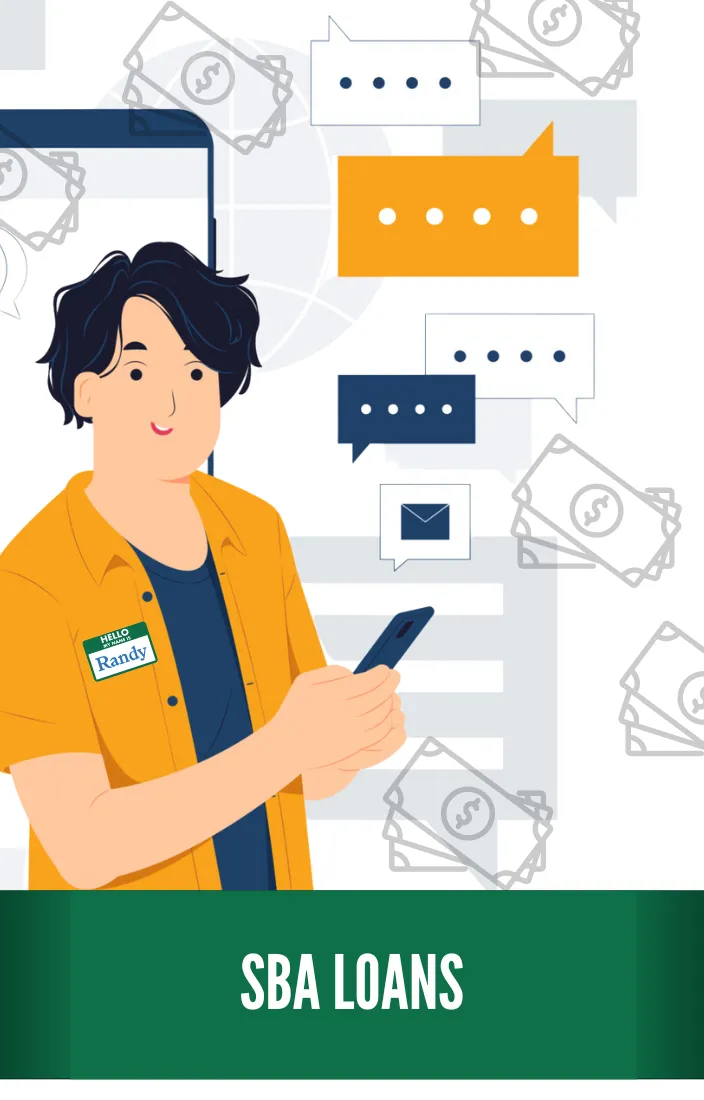
SBA Loans
The Small Business Administration guarantees these loans, which are offered by banks and other lenders. Repayment periods on SBA loans depend on how you plan to use the money. They range from seven years for working capital to 10 years for buying equipment and 25 years for real estate purchases. The process is slow and sometimes arduous. The SBA does not actually lend the money. Special lenders that are part of their program will give you the money and then the SBA guarantees a portion reducing the risk the lender. If you have patience and are not in a hurry these are great loans. If you have an existing business doing well these types of loans are often used to buy another business.
Pros:
Some of the lowest rates on the market with long repayment terms
Can borrow up to $5 Million.
Cons:
Hard to qualify.
Lengthy application process.
If a broker helps you, they will likely charge a success fee of 2 - 3% because this is a complex and time-consuming process.
Best for:
Businesses looking to expand or refinance existing debts.
Borrowers with good credit who can wait a long time for funding.
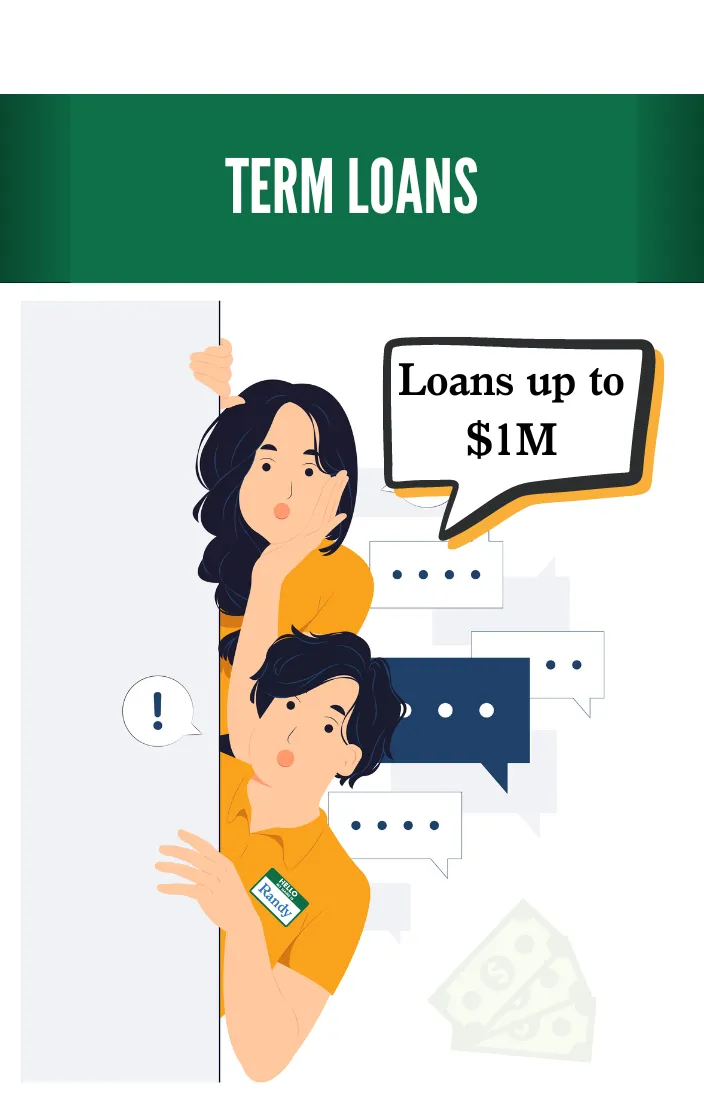
Term Loans
A term loan is a common form of business financing. You get a lump sum of cash up front, which you then repay with interest over a predetermined period. Online lenders offer term loans up to $1 million and can provide faster funding than banks that offer small-business loans.
Pros:
Typically allow you to borrow a higher amount than other types of loans.
Funding is fast if you use an alternative lender rather than a traditional bank, typically a few days to a week versus up to several months.
Cons:
May require a personal guarantee or collateral.
Costs can vary depending on the lender.
Best for:
Businesses looking to expand.
Borrowers who have good credit, good revenue, and who don’t want to wait long for funding.
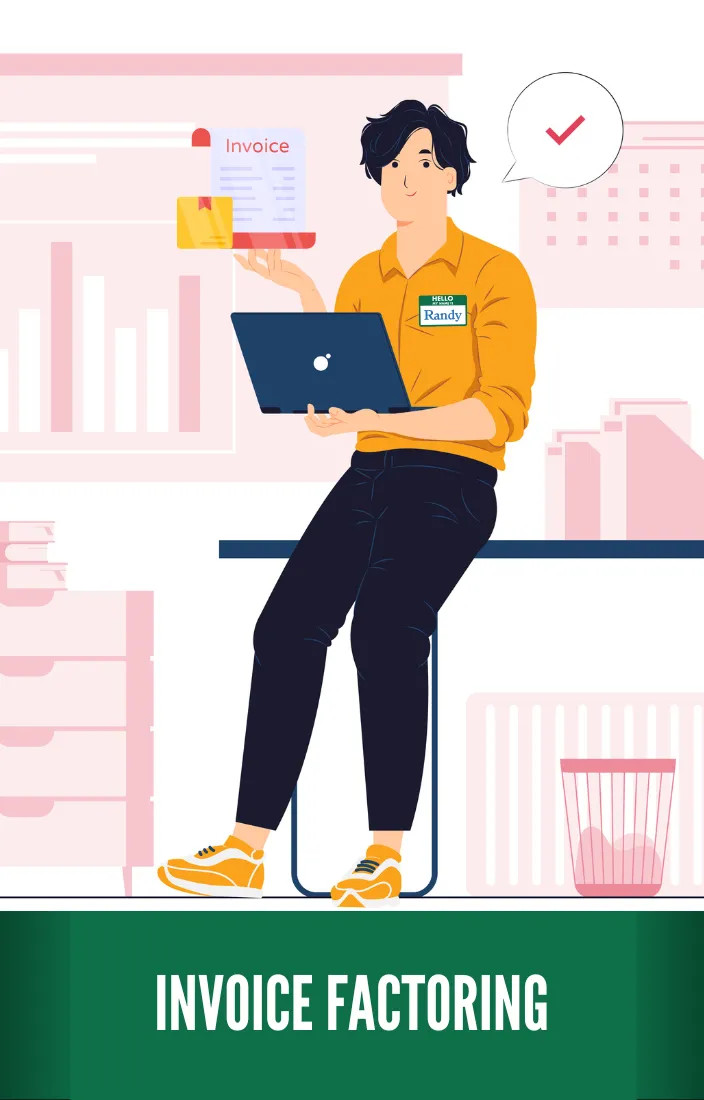
Invoice Factoring
Let’s say your business has unpaid customer invoices, which are typically paid in 60 days. If you need cash now, you can get money for those unpaid invoices through invoice factoring. You would sell the invoices to a factoring company, which would be responsible for collecting from the customer when the invoice is due. You could for example sell $100,000 of invoices that are due in 60 days. Lender will typically charge a discount of 1 to 3 percent. In the case of 3 percent, you would receive $97,000. If the company your are billing then does not pay for another 60 days this discount, then applies again. It is a little more complex than this with sometimes holdbacks, etc. but this is the high-level idea. Once set up, you turn in your invoices to the lender, and you will get paid within a few days. Again, not cheap money, but very fast money on an ongoing basis. This is very popular with trucking and construction company. You must be billing companies and not individuals.
Pros:
Quick cash.
Easier to qualify for than other traditional funding options. The integrity of the companies that you are billing is more important than your credit score.
Cons:
Costly compared to other funding options.
You lose control over the collection of your invoices.
Typical these are recourse loans. If you client goes bankrupt what you have been paid in advance may get clawed back.
Best for:
Businesses with unpaid invoices that need fast cash.
Businesses with reliable customers on long payment terms

Common Business Loan Fees
Like many other types of loans, business loans usually involve fees besides interest. Most lenders typically charge these fees to cover the costs of verifying the borrower's information, filling out paperwork, and other loan-related expenses. The most common fees are the origination fee and the documentation fee but here are some more common ones:
- Monthly administrative fees
- Annual fees
- Service or processing fees
- Prepayment penalties
- Late payment fees
- Wire transfer fees
Always make sure to discuss the fees with your lender or loan broker to make sure you know exactly how much your funding is going to cost you.

Common Business Loan Qualifications
Knowing about the common qualifications for a small business loan can help you get ready as a business owner for when the time comes to apply for a business loan. Every lender's qualification process will be a little different and will also vary depending on the type of loan you're looking for. Some loan types are easy to qualify for but cost more and vice versa. But here is a list of the most common things lenders look at when applying for a business loan:
Business bank statements. Just assume you will be asked to present up front four to six months of bank statements. You can download these as pdfs from your bank.
Cash Flow
Credit scores (both business and/or personal)
Time in business
Business plan (more traditional banks, SBA, etc.)
Collateral
If you are financing equipment, you will be asked for a copy of your purchase quote or invoice.

Credit Repair
The idea of credit repair is to take your current credit score and improve it by minimally increasing your FICO score by 50 to 100 points. For sure, one size does not fit all. Be wary and run away from claims of "Pay me $349 and I will increase your credit score to 750 in 35 days." No one is able to guarantee this.
At Business Loan Randy we do not personally do credit repair, but we know a lot about it and can make recommendations based on your situation. Solutions fall into three categories:
Do it yourself kits. These typically cost $250 and give you templates for you to write letters to creditors and credit bureaus asking them to make corrections. If they do not respond in 30 days, you can request derogatory items to be removed. There are a lot of steps to this process, and if you are very organized and good at follow-up this can work.
Monthly Subscriptions. These typically cost $200 per month and you will likely need services for 6 months. Many will give you a flat rate like $1000 or a not-to-exceed cost to get things done for you. These agencies do all the grunt work and contact all creditors and agencies for you. They are often quite successful. Be wary of people on Tiktok that are going to fix your credit for $49 - if it sounds to good to be true - you get the idea!
Advocates in court for you. Typical cost $2,000 to $5,000. These agencies are either law firms themselves or contract to law firms to go to small claims court and send demand letters as needed. Often it is a payment upon success model. They will review your file ahead of time and decide what they can or cannot do for you. This is a great option IF you have money to resolve issues with your creditors. For example, you have an outstanding obligation of $10,000. If you are willingly to pay off $7,000 then likely your legal advocates will be able to get the creditor to drop the remaining $3,000.
Return on Investment - While these options look pricey, there is a huge return on investment, if successful. If your credit scores are low, you are paying a high price with higher-than-normal interest rates to get credit. For example, moving your FICO score from 600 to 700 opens up a world of new possibilities for you.
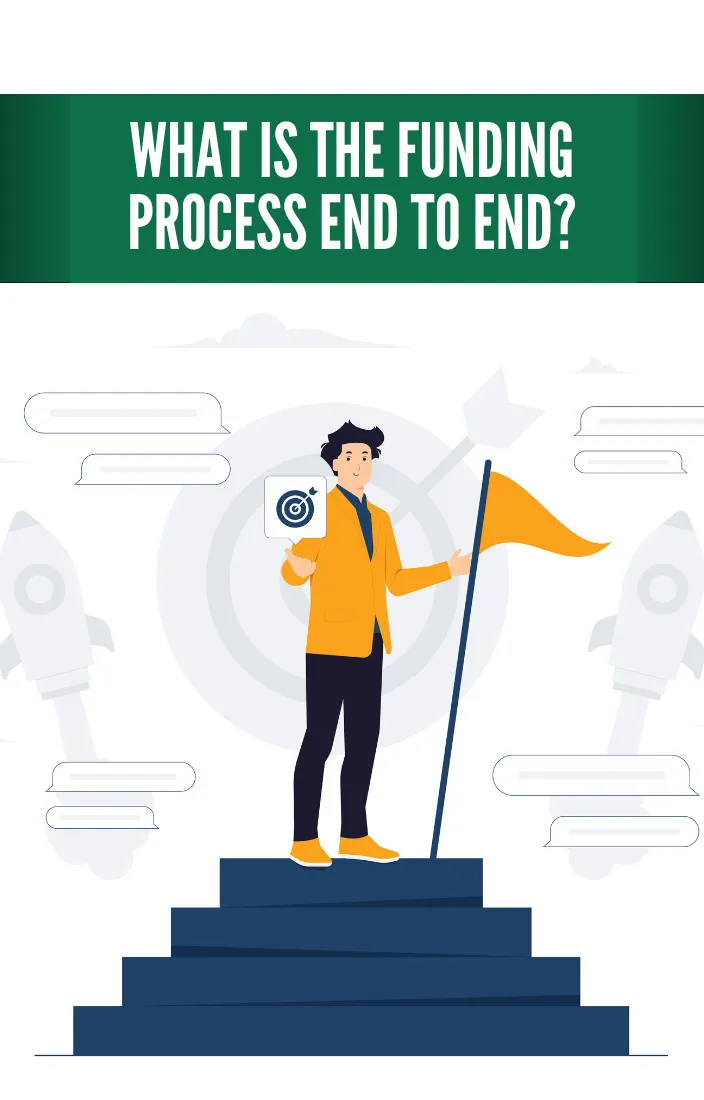
What is the Funding Process End to End?
Here is what to expect when working with Business Loan Randy from start to finish. There is no charge to you to use a broker. Brokers are compensated by the lender. The advantage is that a broker has many options to match you with, unlike your bank who just give you a simple yes or no and then your start all over again with documentation.
Our goal is to educate you at every step, answer all of your questions and find funding that makes sense for your situation. We act as funding consultants for you - this is not a hard sell process. Our goal it to be fast but it depends on the type of funding. Things like Merchant Cash Advances are crazy fast. Things like SBA loans - well you will have lots of time to watch Netflix :-) but the rates and terms will be awesome.
Submit a one-to-two-page application one time and this is then used anywhere in our system of 150 lenders.
Submit the initial required documentation which will always be four months of bank statements and if you are buying equipment a quote for the equipment you want to purchase
We do a "soft" credit pull to see your FICO score. This does not affect your credit.
Internally we will review your application and then discuss it with you
Next, we will match your application with the lenders that specialize in your request.
The goal is to get multiple offers back from different lenders sometimes within hours but certainly within a few days.
We will then discuss the options with you.
You choose the option you want.
At this point underwriters will review your loan package and may request additional documentation and information.
If denied, we will explore other options for you and/or work with you to improve/resolve whatever caused the denial.
When approved, you will sign final documents and funds will be quickly wired to you.
Free Business Loan Calculator - Figure Out Your Monthly Costs
Enter your loan details into the calculator to get an estimate of your monthly loan payment, as well as how much interest you would pay over the life of the loan.
Keep in mind that this is just an estimate. Your payment and loan costs can vary greatly depending on the type of loan you qualify for.
That's why we highly recommend requesting your own Custom Business Funding Plan below that will give you a personalized plan with loan options that are best suited for your business right now and what the terms and rates would be.
Large Call to Action Headline
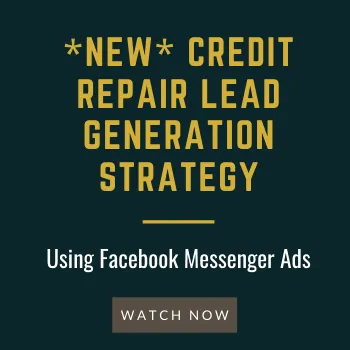
Small Call to Action Headline
Large Call to Action Headline

Small Call to Action Headline
Large Call to Action Headline

Small Call to Action Headline
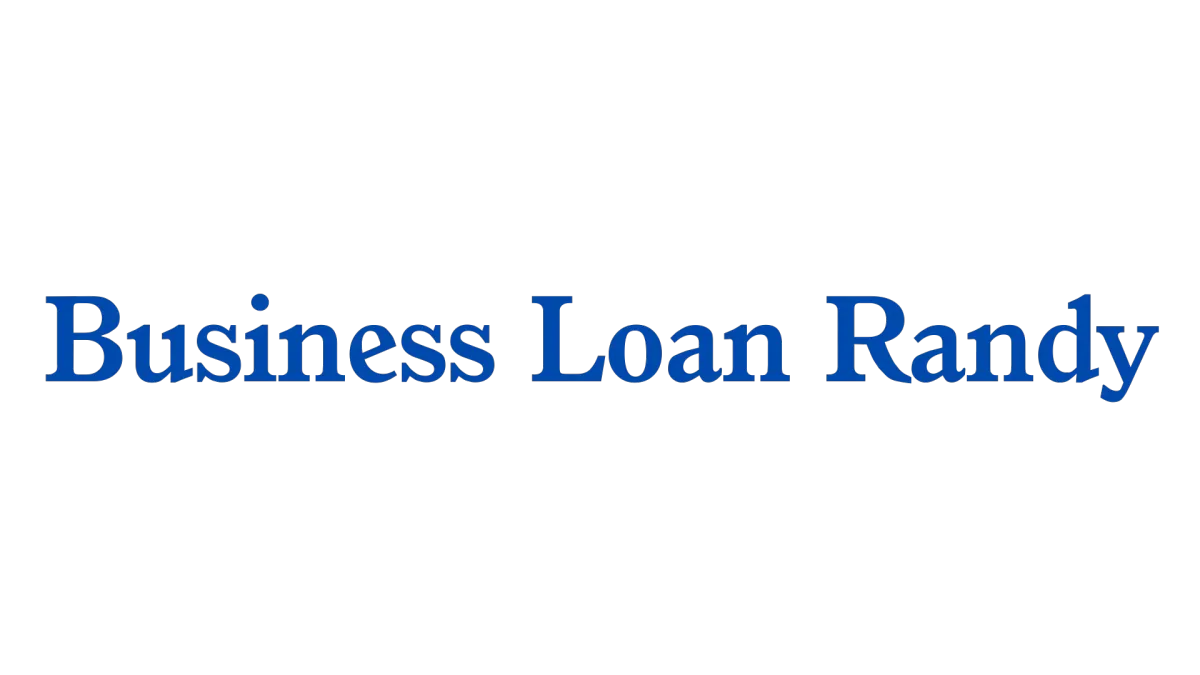
TAKE THE NEXT STEP NOW

Want Help Getting Funding For Your Business?
Click the button below to request a complimentary Custom Business Funding Plan. This will show you exactly what your best loan and credit options are based on your current revenue, credit score, etc. You will also be assigned a dedicated Business Funding Expert to assist you with getting the funding you need and answering any questions you have. We will help match you up with the specific lenders that match what you want to do. At Business Loan Randy we have 150 lenders with 2500 different lending programs to choose from. We review and discuss in detail your needs and credit with you and then reach out to the lenders mostly likely to fund you. To get started you just need to answer a few questions that will take you less than one minute.
Contact
© 2025 All Rights Reserved Business Loan Randy
This site is NOT a part of the Facebook website or Facebook Inc. Additionally, This site is not endorsed by Facebook in any way.
FACEBOOK is a trademark of FACEBOOK INC